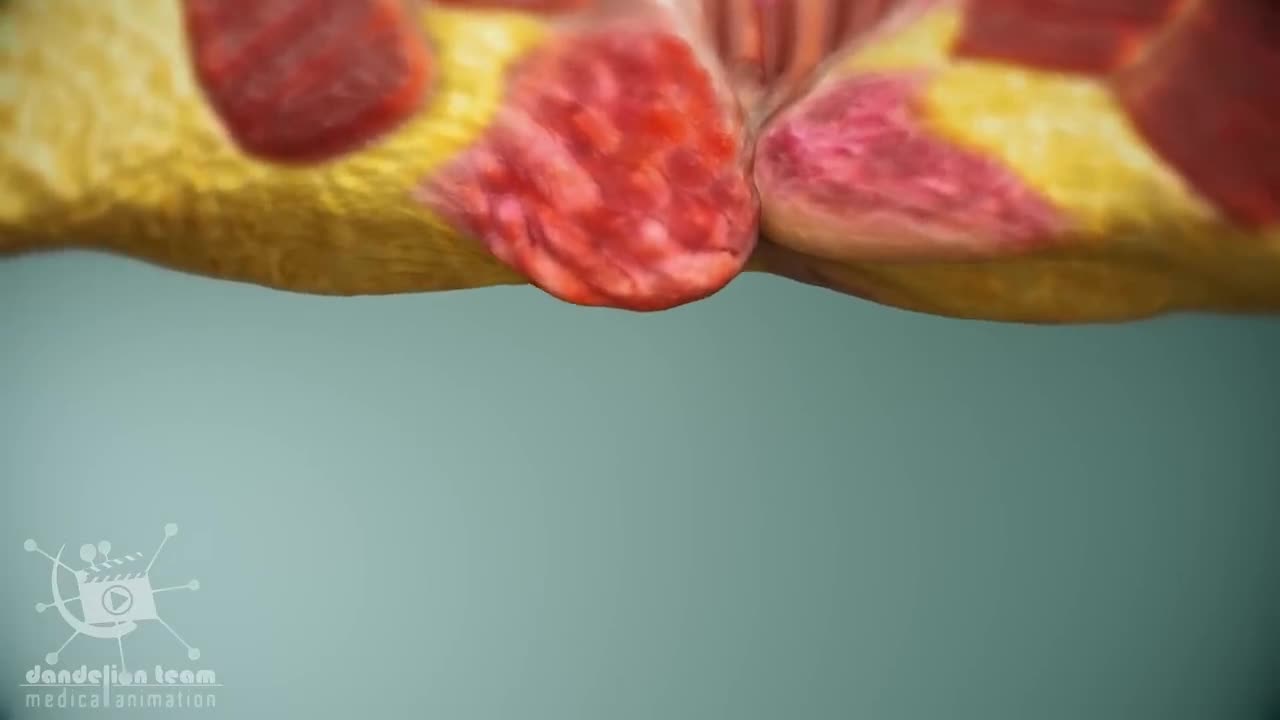Premium Only Content

Hemorrhoids: Different Types Of Hemorrhoids, External & Internal Hemorrhoida
Hemorrhoids are swollen veins in the anus and lower rectum. They are similar to varicose veins that can develop in other parts of the body. There are two main types of hemorrhoids: internal and external.
* **Internal hemorrhoids** develop inside the rectum. They are not usually painful, but they can bleed. If an internal hemorrhoid prolapses, it may become visible outside the anus.
* **External hemorrhoids** develop under the skin around the anus. They can be painful, itchy, and swollen. If an external hemorrhoid becomes thrombosed, it may develop a blood clot. This can cause severe pain and swelling.
The symptoms of hemorrhoids can vary depending on the type and severity of the hemorrhoid. Some common symptoms include:
* **Bleeding:** This is the most common symptom of hemorrhoids. The bleeding is usually bright red and painless. It may occur during a bowel movement or after wiping.
* **Pain:** External hemorrhoids can be painful, especially when you sit or stand. Internal hemorrhoids are not usually painful, but they can become painful if they prolapse or thrombose.
* **Itching:** External hemorrhoids can be itchy.
* **Swelling:** External hemorrhoids can be swollen.
* **Prolapse:** Internal hemorrhoids can prolapse, which means they bulge outside the anus.
There are a number of things that can increase your risk of developing hemorrhoids. These include:
* **Constipation:** Constipation can put a lot of strain on the veins in the anus and rectum, which can lead to hemorrhoids.
* **Diarrhea:** Diarrhea can also put a strain on the veins in the anus and rectum.
* **Straining during bowel movements:** Straining can put a lot of pressure on the veins in the anus and rectum, which can lead to hemorrhoids.
* **Lifting heavy objects:** Lifting heavy objects can put a lot of pressure on the veins in the anus and rectum, which can lead to hemorrhoids.
* **Pregnancy:** Pregnancy can increase your risk of developing hemorrhoids due to the pressure of the baby on the veins in the pelvis.
* **Age:** Hemorrhoids are more common in older adults.
If you think you may have hemorrhoids, it is important to see a doctor for diagnosis and treatment. There are a number of things you can do to help prevent hemorrhoids, including:
* **Eating a high-fiber diet:** This will help to keep your bowel movements regular and prevent constipation.
* **Drinking plenty of fluids:** This will help to keep your bowel movements soft and prevent constipation.
* **Exercising regularly:** This will help to keep your bowel movements regular and prevent constipation.
* **Avoiding straining during bowel movements:** If you need to strain, try to relax and bear down slowly.
* **Lifting heavy objects with your legs, not your back:** This will help to prevent putting too much pressure on the veins in the anus and rectum.
* **Treating constipation:** If you are constipated, see your doctor for treatment.
* **Losing weight:** If you are overweight or obese, losing weight can help to reduce your risk of developing hemorrhoids.
There are a number of treatments available for hemorrhoids. The best treatment for you will depend on the severity of your hemorrhoids. Some common treatments include:
* **Over-the-counter medications:** There are a number of over-the-counter medications that can help to relieve the symptoms of hemorrhoids, such as pain, itching, and swelling.
* **Prescription medications:** There are also a number of prescription medications that can help to relieve the symptoms of hemorrhoids.
* **Home remedies:** There are a number of home remedies that can help to relieve the symptoms of hemorrhoids, such as applying a warm compress to the affected area or taking a sitz bath.
* **Surgery:** In some cases, surgery may be necessary to treat hemorrhoids.
If you have hemorrhoids, it is important to see a doctor for diagnosis and treatment. There are a number of things you can do to help prevent hemorrhoids, and there are a number of treatments available that can relieve the symptoms and help you get back to your normal activities.
-
 LIVE
LIVE
The Quartering
26 minutes agoFAA Bans Drones, Elon Musk For Speaker Of The House, Fani Willis Humiliated, Disney Drops Woke!
2,558 watching -
 LIVE
LIVE
Russell Brand
1 hour agoHow the State Department Shapes Global Narratives
7,199 watching -
 LIVE
LIVE
Ben Shapiro
41 minutes agoEp. 2108 - Musk, Trump Team Up To KILL Pork Bill
2,909 watching -
 LIVE
LIVE
vivafrei
4 hours agoLock Liz Cheney Up! Spending Bill MADNESS! Not Just Pork, but GAIN OF FUNCTION! & MORE! Viva Frei
4,045 watching -
 55:51
55:51
The Dan Bongino Show
4 hours agoWe Are NOT Falling For This Again (Ep. 2391) - 12/19/2024
468K1.83K -
 LIVE
LIVE
The Charlie Kirk Show
1 hour agoAmericaFest: Day 1 | Bannon, Maloney, Posobiec, O'Keefe | 12.19.24
7,494 watching -
 LIVE
LIVE
TheAlecLaceShow
3 hours agoGuests: AG Andrew Bailey & Dr. Michael Schwartz | DOGE Shuts Down Speaker’s CR | The Alec Lace Show
127 watching -
 LIVE
LIVE
hambinooo
46 minutes agoPUBG DOMINATION
93 watching -
 1:03:06
1:03:06
The Rubin Report
2 hours ago‘Piers Morgan’ Goes Off the Rails as 'TYT' Host Attacks Dave with Nasty Insults
29.4K55 -
 1:47:50
1:47:50
Steven Crowder
3 hours agoLWC Christmas Special 2024 | Giving Back with Santa Crowder
101K196